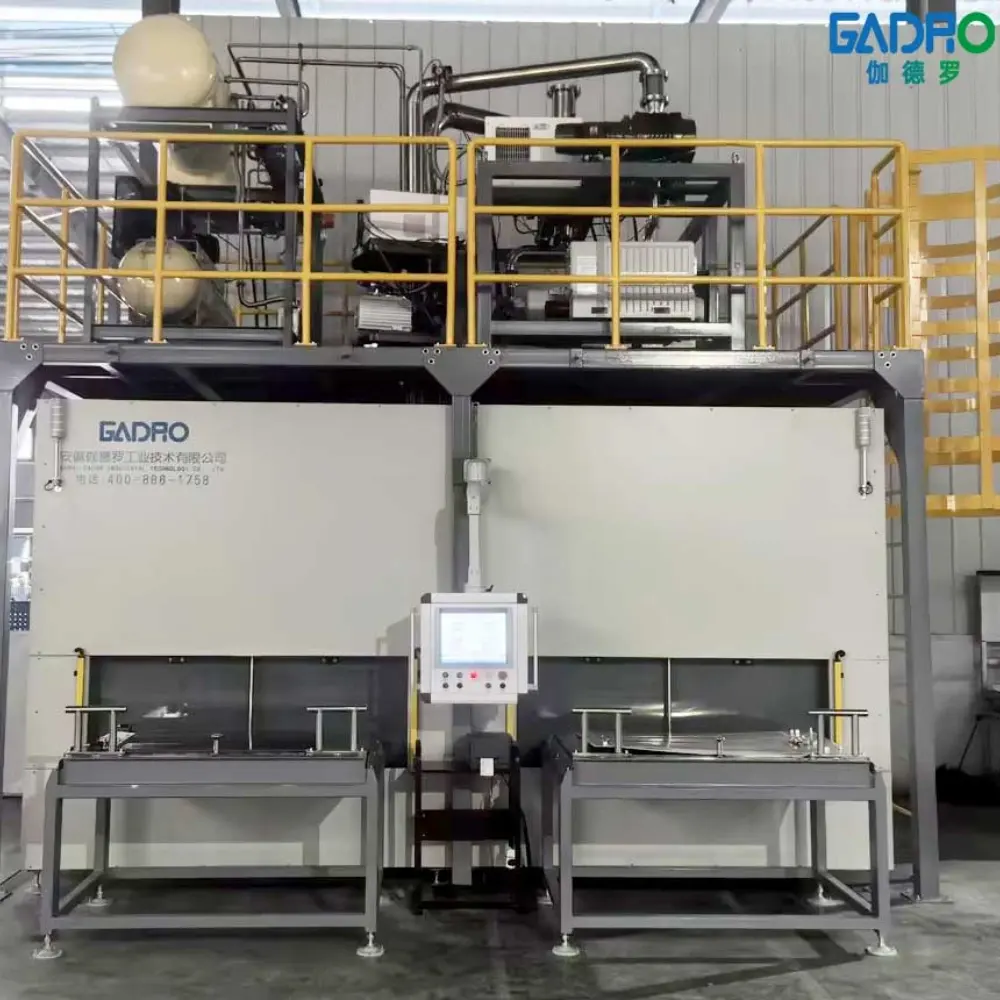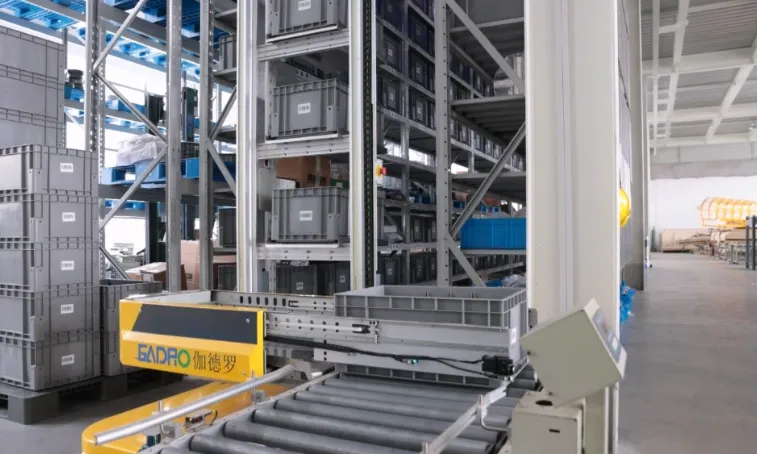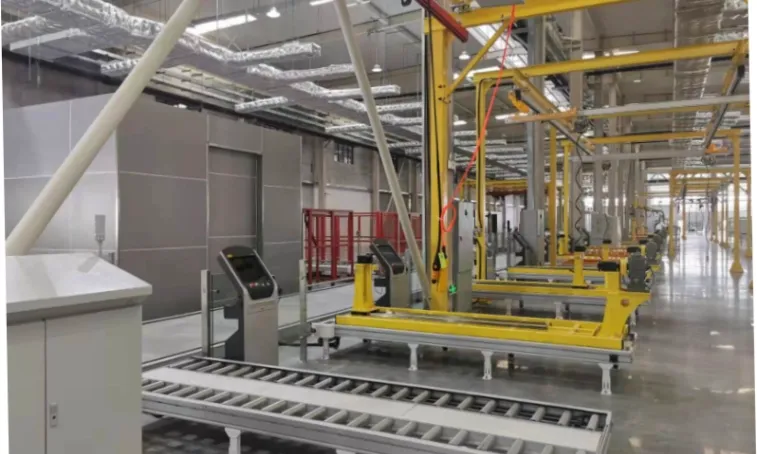تُستخدم أنظمة الكشف عن تسرب الهيليوم بشكل متزايد في صناعة السيارات، وخاصةً للكشف عن التسربات في أنظمة التبريد مثل أنظمة تكييف الهواء والتدفئة والتهوية وتكييف الهواء. تتطلب هذه الأنظمة دقة عالية، حيث يمكن حتى لأصغر التسريبات أن تؤدي إلى فقدان المبرد، أو انخفاض أداء النظام، أو المخاطر البيئية. فيما يلي كيفية تطبيق نظام الكشف عن تسرب الهيليوم في أنظمة التبريد في السيارات:
أهمية اكتشاف التسرب في أنظمة التبريد بالسيارات
فقدان المبرد: تعتمد أنظمة التدفئة والتهوية وتكييف الهواء في السيارات على المبردات (على سبيل المثال، R134a، R1234yf، أو غيرها) لنقل الحرارة والحفاظ على درجة حرارة المقصورة الداخلية. يمكن أن تتسبب أي تسريبات في فقدان المبرد، مما يؤدي بدوره إلى انخفاض أداء التبريد، وزيادة استهلاك الطاقة، وربما الضرر البيئي.
التأثير البيئي: يمكن أن تساهم المبردات المتسربة في استنفاد الأوزون والاحتباس الحراري العالمي. استخدام كشف تسرب الهيليوم يعد ذلك ضروريًا لضمان الحد الأدنى من فقدان المبرد، وخاصةً مع المبردات الأحدث والأكثر صداقة للبيئة والتي لديها لوائح بيئية صارمة.
كيف تعمل تقنية الكشف عن تسرب الهيليوم في تبريد السيارات
الهيليوم كغاز كاشف: يستخدم نظام كشف التسرب الهيليوم كغاز كاشف. يتم حقن الهيليوم في نظام التبريد تحت الضغط أو الفراغ. إذا كان هناك أي تسرب، فسوف يتسرب الهيليوم، ويمكن لأجهزة الكشف المتخصصة اكتشاف وجود الغاز.
كشف تسرب مطياف الكتلة: أ مطياف الكتلة يُستخدم هذا الجهاز غالبًا في أنظمة الكشف عن تسرب الهيليوم. فهو يقيس تركيز غاز الهيليوم في المنطقة المحيطة بنظام التبريد. ونظرًا لأن الهيليوم خامل كيميائيًا وحساس للغاية، فإن النظام يمكنه الكشف بدقة حتى عن أصغر التسريبات.
مجسات الشم: لتحديد أماكن التسرب، يتم استخدام مجسات الشم المزودة بأجهزة استشعار الهيليوم. يمكن تمرير هذه المجسات حول المفاصل والوصلات والأختام لتحديد أماكن التسرب في نقاط محددة في النظام.
مزايا الكشف عن تسرب الهيليوم في تبريد السيارات
حساسية عالية للتسربات الصغيرة: تعمل أنظمة التبريد في السيارات غالبًا تحت ضغط مرتفع، وحتى أصغر التسريبات يمكن أن تؤدي إلى فشل النظام بمرور الوقت. يمكن للهيليوم، باعتباره أصغر ذرة، اكتشاف تسربات صغيرة تصل إلى بضعة ميكرونات، مما يوفر دقة عالية في تحديد أماكن التسريبات التي قد تفشل في اكتشافها الطرق الأخرى.
غير سام وغير قابل للاشتعال: الهيليوم آمن تمامًا وغير تفاعلي، مما يضمن عدم إلحاق الضرر بالبيئة أو نظام السيارة. وهو أمر مهم بشكل خاص عند التعامل مع أنظمة التدفئة والتهوية وتكييف الهواء للسيارات التي تستخدم مبردات قد تكون قابلة للاشتعال أو ضارة.
سريع ودقيق: أجهزة كشف تسرب الهيليوم توفير نتائج في الوقت الفعلي، مما يسمح للفنيين بتحديد الموقع الدقيق للتسرب ومعالجته بسرعة. وهذا يقلل من وقت التوقف أثناء التصنيع أو الإصلاحات أو الصيانة، مما يحسن الكفاءة الإجمالية.
الحد الأدنى من التداخل: يعد اكتشاف الهيليوم موثوقًا للغاية لأن الهيليوم يتمتع بنسبة كتلة إلى شحنة فريدة، مما يجعل من السهل التمييز بينه وبين الغازات الأخرى في البيئة. ويؤدي هذا إلى تقليل النتائج الإيجابية الخاطئة أو التداخل، مما يضمن دقة اكتشاف التسرب.4
الاتجاهات المستقبلية في مجال تبريد السيارات واكتشاف التسربات
المبردات المتقدمة: مع تطور المبردات مع التركيز على الاستدامة البيئية (على سبيل المثال، HFOs مثل R1234yf)، يظل اكتشاف تسرب الهيليوم مهمًا لضمان عدم تسرب هذه المبردات الأحدث والأكثر حساسية أثناء التشغيل.
التكامل مع إنترنت الأشياء: يتم دمج أنظمة الكشف عن التسرب في منصات إنترنت الأشياء لتوفير المراقبة والتشخيص في الوقت الفعلي. وهذا أمر ذو قيمة خاصة في صناعة السيارات، حيث يمكن استخدام بيانات الكشف عن التسرب للتنبؤ بالصيانة وتحسين أداء السيارة.
أتمتة اختبار التسرب: أصبحت الأتمتة في عمليات اختبار التسرب أكثر انتشارًا، مع وجود أنظمة قادرة على اكتشاف وإصلاح التسريبات تلقائيًا في خطوط التجميع، مما يقلل من الخطأ البشري ويحسن الكفاءة.
يوفر اكتشاف تسرب الهيليوم حلاً موثوقًا ودقيقًا وصديقًا للبيئة لتحديد تسربات المبردات في أنظمة التدفئة والتهوية وتكييف الهواء للسيارات. تضمن هذه التقنية اكتشاف حتى أصغر التسريبات، والحفاظ على كفاءة النظام، وتقليل التأثير البيئي، وتحسين الأداء العام للسيارة. مع تحرك صناعة السيارات نحو معايير بيئية أكثر صرامة وأنظمة تبريد معقدة، سيستمر اكتشاف تسرب الهيليوم في لعب دور حيوي في عمليات مراقبة الجودة والصيانة.




